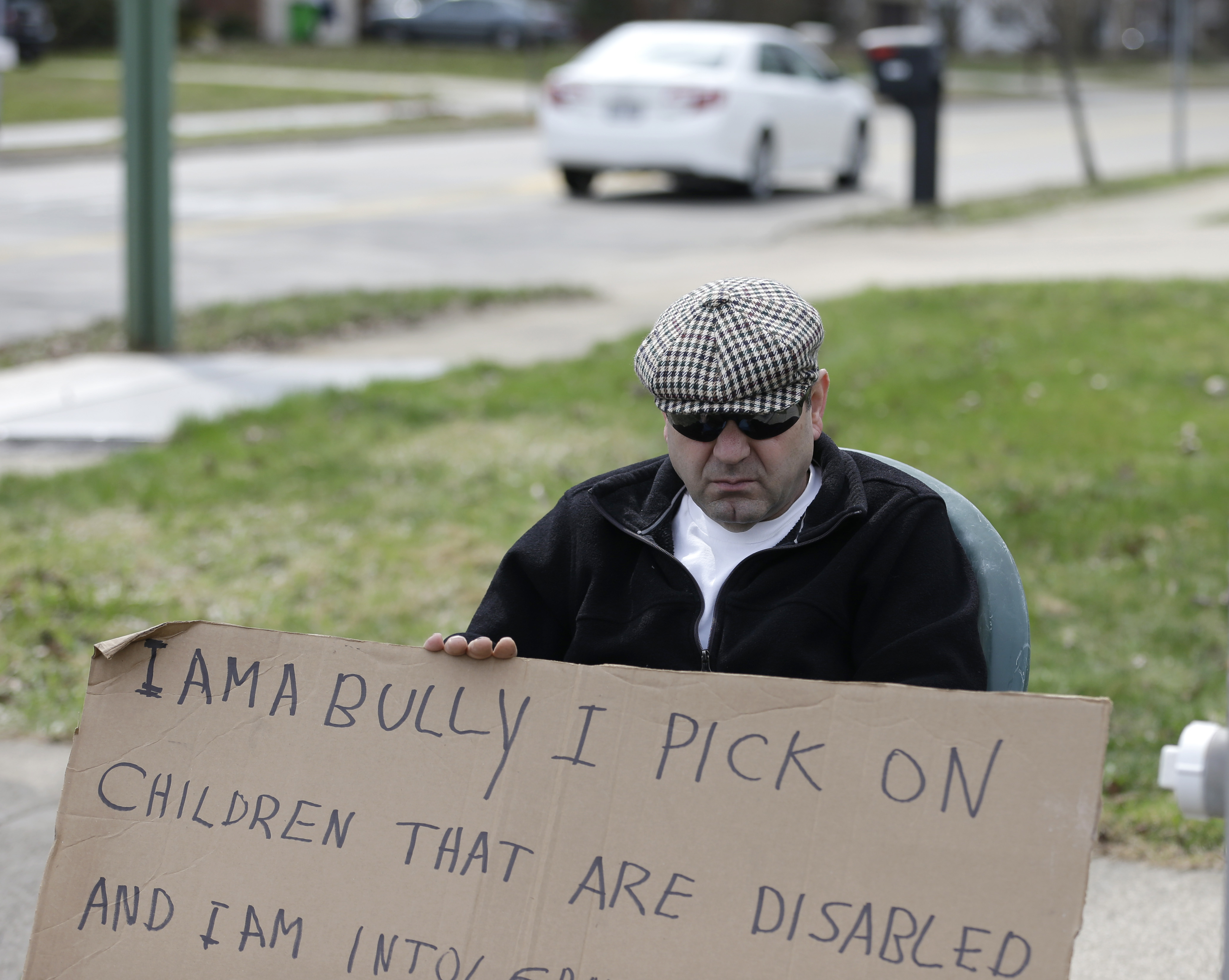
Edmond Aviv doesn’t look so tough now.
Why don’t more judges do what Gayle Williams-Byers did in Euclid Ohio yesterday: force people to endure the shame of their actions?
Aviv has feuded with his neighbor Sandra Prugh for the past 15 years, according to the Associated Press.
The most recent case stemmed from Aviv being annoyed at the smell coming from Prugh’s dryer vent when she did laundry, according to court records. In retaliation, Aviv hooked up kerosene to a fan, which blew the smell onto Pugh’s property, the records said.
Prugh has two adult adopted children with developmental disabilities, cerebral palsy and epilepsy; a husband with dementia, and a paralyzed son.
Prugh said in a letter to the court that Aviv had called her an ethnic slur while she was holding her adopted black children, spit on her several times, regularly threw dog feces on her son’s car windshield, and once smeared feces on a wheelchair ramp.
Class act, Mr. Aviv.
Ohio judges seem to have the right idea.
Two years ago, a judge in Cleveland ordered a similar sentence for a woman who drove onto a sidewalk to avoid stopping for a school bus.
She had to hold a sign saying she was an idiot.
A man who stole characters from a nativity scene had to walk the street pulling a donkey.
All the judges seem to be taking their cue from Painesville, Ohio Municipal Judge Michael Cicconetti, who has become famous for his sentences.
It is too easy to put people in jail,” Cicconetti told the Cleveland Plain Dealer in 2012. They go to jail and . . . it does not deter the crime.”
You don’t usually hear about those shamed committing another offense.
